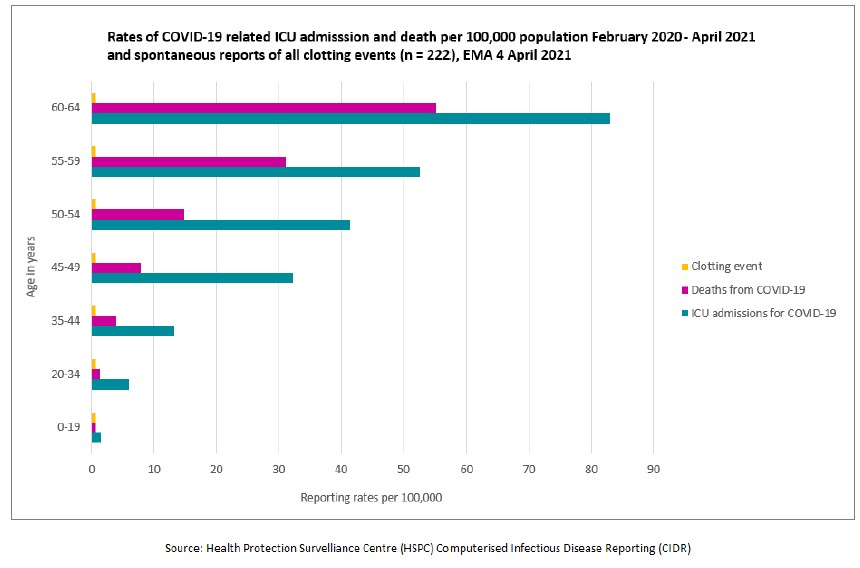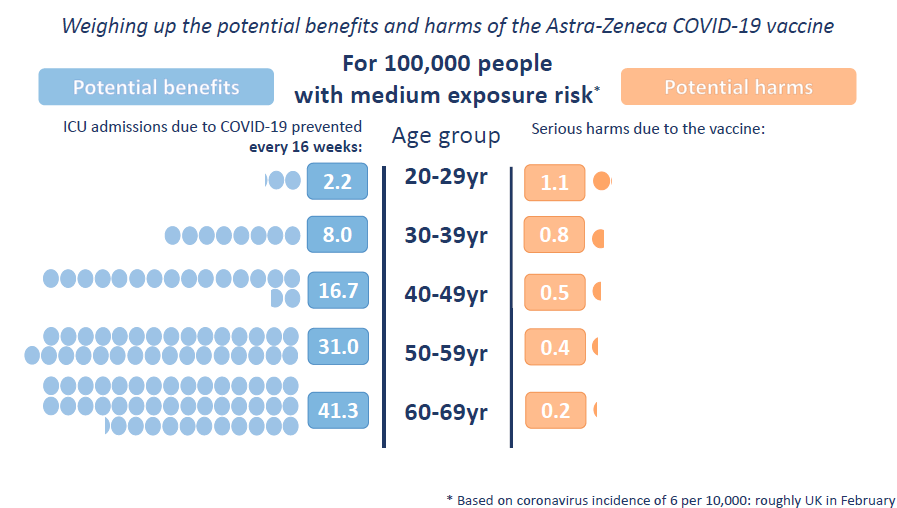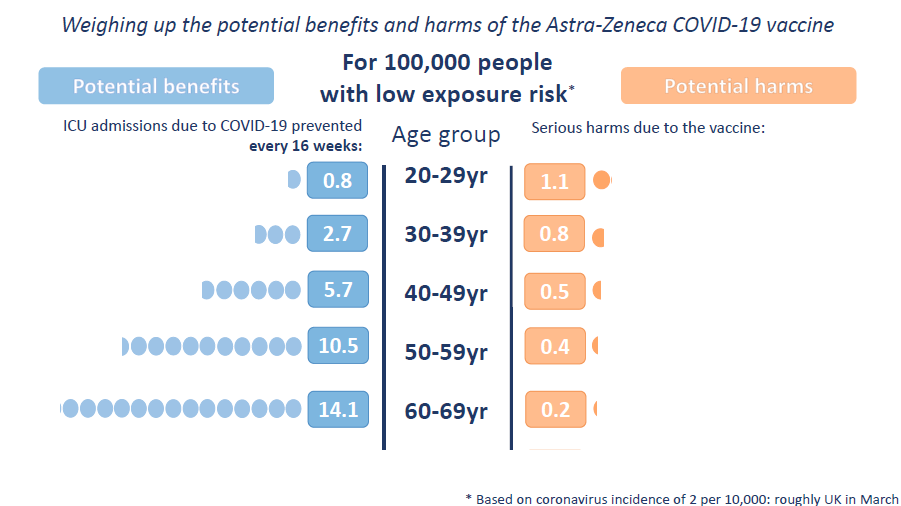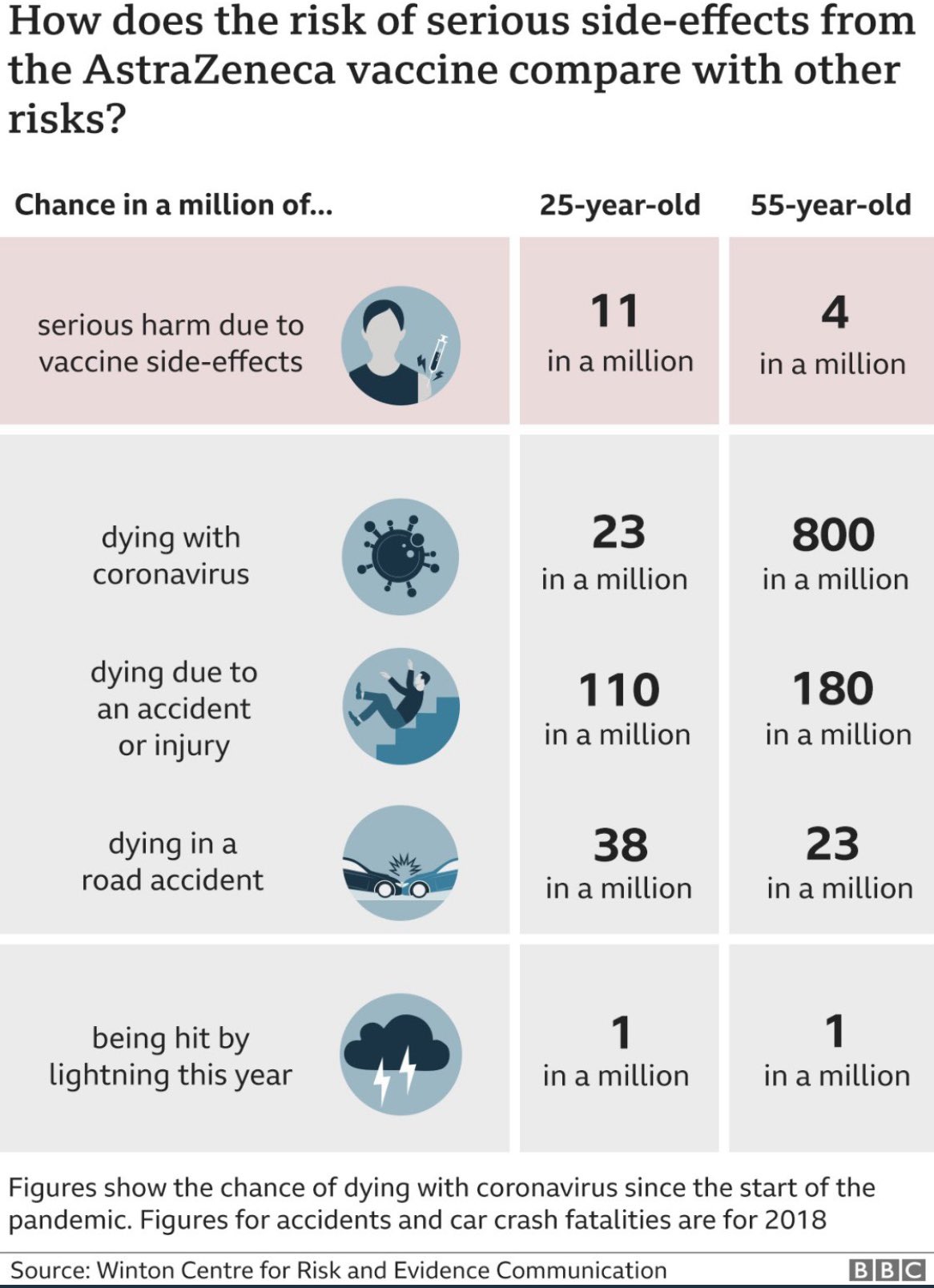This page was created on 14 April 2021, based on the best available information at that time. We will update it as further information becomes available.
Vaccines are providing the country with hope – a way out of the COVID-19 pandemic. However our national vaccine programme is currently having some difficulties because of concerns about the AstraZeneca vaccine, which makes up about 20% of our vaccine stock. This article attempts to explain the issues and place them into some appropriate context.
As we all know COVID-19 is a “new disease” and therefore COVID-19 vaccines are also new. However up to mid April, over 800 million COVID-19 vaccines have been delivered worldwide. Overall they are being found to be extremely effective and very safe, however there are very few of life’s activities and very few medications likewise that guarantee 100% effectiveness and safety. The following information comes from our National Immunisation Advisory Committee and the University of Cambridge.
The National Immunisation Advisory Committee (NIAC) has issued new recommendations in relation to Vaxzevria® vaccine (COVID-19 Vaccine AstraZeneca) following the report of the European Medicines Agency (EMA) on rare thromboembolic events associated with thrombocytopenia after vaccination.
These events are very rare, and estimated to occur between 4 and 10 in every 1 million people, one of whom may die. Because so few events have been reported, there is a high level of uncertainty about whether these events happen more frequently in any particular age group or gender.
Although most cases occurred in women under 60 years of age, this may be because of the higher rate of vaccination in healthcare workers who are mostly female. In the UK the rate of events reported was similar in men and women.
The risk of death from COVID-19 that is 85 times higher than the risk of a clotting event for those aged 60 and older

However that risk changes depending on levels of COVID-19 in the community, so putting that another way, using illustrations from the UK

Even in a low risk environment, the potential benefits of Astra Zeneca vaccine can be seen in the older age groups.
To use a final graphic, we compare in another way by looking at other risks which have nothing to do with COVID-19 vaccines

Risk and probability are difficult concepts.
How often do we buy a lottery ticket when there’s a local winner? If we do, how often do we win?!
Some final comparisons:
- There have been 800 Lottery millionaires since our National Lottery started.
- If as originally planned, we vaccinated 20% of the Irish population with Astra Zeneca vaccine, we would expect no more than 6 people to suffer serious blood clots.
- 149 people died on Irish roads in 2020
- 4800+ Irish citizens have died from COVID-19
None of this information is to deny or minimise issues, but consider this thought in summary.
Yes, there is a tiny but potentially very serious risk with AstraZeneca COVID-19 vaccination. However there is also risk with not being vaccinated if that leads to you contracting COVID-19 vaccination. And the risks associated with that infection are much higher than the vaccine risk.
Specific question have been raised about risk factors, particularly by people with previous clotting problems. Ireland’s leading haematologists have concluded there is no increased risk – click on the link below
https://www.stjames.ie/media/Information%20for%20NCC%20patients%20regarding%20the%20Astra%20Zeneca%20COVID19%20vaccine%20v3%20FINAL.docx
All your doctors and practice staff have been delighted to be vaccinated – to protect themselves and to protect you.

